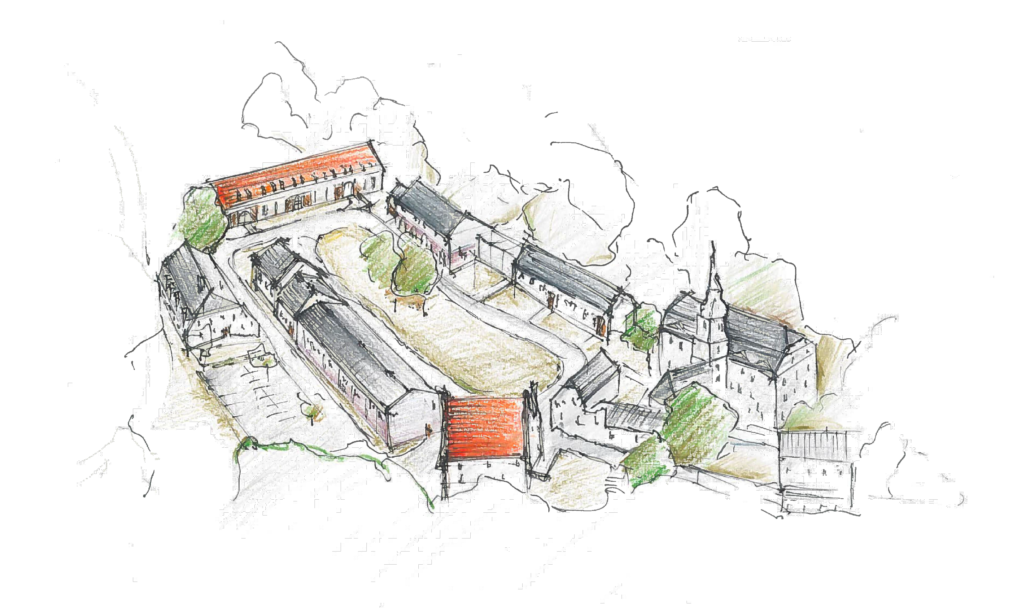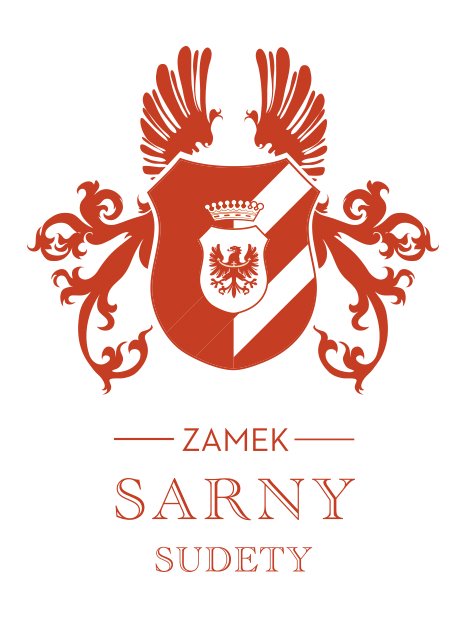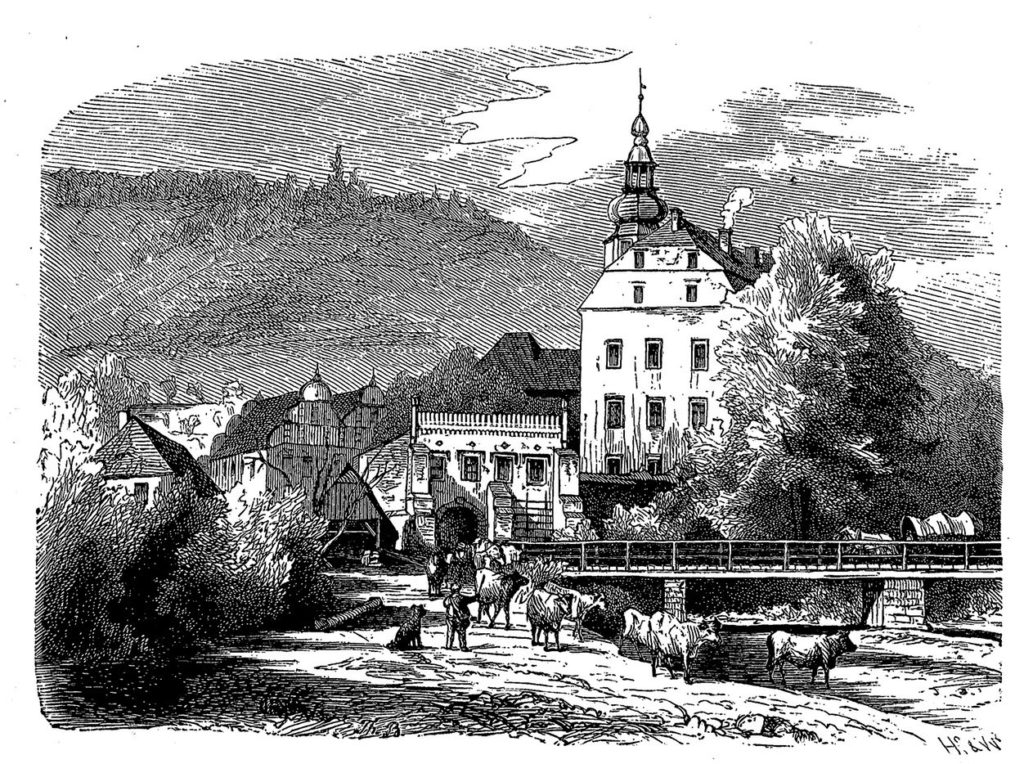Sarny Yesterday and Tomorrow
 Built on a rocky perch in the valley of River Ścinawka (German Steine), between Owl and Table Mountains, the main building of the historic castle and outbuildings in Sarny (German Scharfeneck) was erected in 1590.
Built on a rocky perch in the valley of River Ścinawka (German Steine), between Owl and Table Mountains, the main building of the historic castle and outbuildings in Sarny (German Scharfeneck) was erected in 1590.
For most of its documented history it belonged to the wealthy and influential family of the Counts Götzen, many of whom ran the County of Glatz (Polish Kłodzko) in the name of the Habsburg and Hohenzollern monarchs.
It was at Scharfeneck Castle that in 1866 Count Gustav Adolf von Götzen was born. He went on to become the colonial governor of German East Africa.
The Götzens made Scharfeneck bloom, expanding the residence, adding a summer palace and, in the 18th century, building the St. John Nepomucene Chapel with its exquisite gigantic paintings.
In 1945, and with the name Scharfeneck changed to Sarny in the 1950s, the landmark became property of the Polish communist state, which turned it into a collaborative farm. After communism ended in 1989 and such farms were disbanded, the castle fell into disrepair and by the 2010s had come to the brink of collapse.
In 2010, London-based Save Britain’s Heritage, a charitable trust working with Prince Charles, The Prince of Wales, was close to taking over the property from the Polish government. For bureaucratic reasons and because of communication blunders, the transaction never happened.
 In late 2013, Poland sold Sarny Castle to a group of Warsaw-based lawyers and a journalist who founded a charitable trust to take care of the property.
In late 2013, Poland sold Sarny Castle to a group of Warsaw-based lawyers and a journalist who founded a charitable trust to take care of the property.
In 2014, with financial help from the local government of Lower Silesia, the castle’s 17th-century granary was given a new roof.
Also that year, work was done to prevent the main building from falling apart. A complex renovation of the gatehouse began as did planning work.
In 2016 the Polish government granted 400,000 złotys (about $112,000) for work on the main building’s structure (new floors) and 180,000 złotys (about $50,000) for work on the belfry. In 2018, the government supported the foundation with a grant for the reconstruction of the castle roof and in 2020 with another grant for the roof covering with slate. In 2021, the foundation was able to install a new roof over the chapel thanks to more government support.
In 2020, the local government of Lower Silesia once against gave a grant that allowed for a renovation of the northern terrace. The Lower Silesian Conservation Office supported research into the palace’s decorations.
In 2021 and 2022, we completed the first two phases of the chapel renovation to replace the roof covering and do vital structural work. We’re now ready for the conservation of the 1738 paintings inside the chapel.
The gatehouse was completely refurbished and opened in May 2017 as a luxury café and the gateway to Sarny Castle. In 2020-2022 two farmhouses were completely refurbished, offering 16 boutique rooms. Our goal is to renovate further farmhouses to bring the total number of hotel rooms to 50, providing the financial foundation for the estate. The residence will become a museum showcasing country-house decor and lifestyle.
Sarny Castle is now also a place of high culture. Since 2019, it’s been a venue of the Mountains of Literature Festival hosted by Olga Tokarczuk, the Nobel Prize in Literature recipient for 2018 who lives just four kilometers away. Since 2022, we’ve been the festival’s primary location, with dozens of meetings and concerts. About 1,400 people attended a 2022 meeting with Olga Tokarczuk.
We’re active in early music. In July 2015, we held the 1st International Summer School of Early Music. In July 2016 and August 2017, the summer school saw its second and third editions, with the world’s most renowned specialists in Baroque music: Jeremy West (cornett), Wim Becu (sackbut), Arno Paduch (cornett), Stephanie Dyer (sackbut), Piotr Kusiewicz (tenor), Jakub Burzyński (director and countertenor). Master classes have been held each year since and the 9th edition is scheduled for the summer of 2023.
From 2016, Sarny Castle has been privileged to host concerts by Arte dei Suonatori, one of Europe’s best Baroque orchestras. In 2016, cembalo player Marcin Świątkiewicz joined the group in Sarny for a concert of Joseph Haynd. In 2017, world-famous French harpsichordist Martin Gester played a unique program of Wolfgang Amadeus Mozart and Johann Schobert with Arte dei Suonatori. A string of other concerts have followed.
Sarny Castle is open daily from 11am to 8pm.
